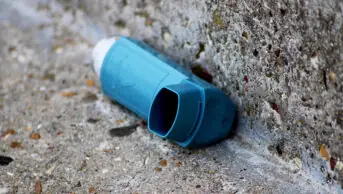
Shutterstock.com
NHS England is looking to develop sustainability guidance for both community and hospital pharmacy teams to reduce their environmental impact, according to a contract tender.
The tender says that the provider chosen to develop the guidance will also be responsible for creating an accreditation programme for pharmacy teams working in both settings, to mark their sustainability status if they complete the actions outlined in the guidance.
Under the contract — valued at £70,000 and published on 31 January 2023 — the provider will produce guidance and an accreditation scheme that “will bring together both new and existing information and guidance for pharmacies and all pharmacy staff on actions to reduce the environmental impact of healthcare, medicines, and pharmacy practices”, the contract document says.
In 2020, the NHS committed to reaching net zero carbon emissions by 2040, highlighting that medicines accounted for 25% of emissions within the NHS, with anaesthetic gases accounting for 2% of emissions and inhalers accounting for 3%.
“Pharmacy staff and businesses are part of the process of purchasing and dispensing of almost every medicine used in the NHS. As a result, there is potential for actions to be identified that enable pharmacies and pharmacy staff to be able to influence medicines supply, usage and disposal,” the contract document says.
It adds that the guidance should “outline evidence-based activities and actions for pharmacy settings and staff, structured according to different levels of maturity, in order to reduce the environmental impact of both the clinical and non-clinical aspects of pharmacy practice”.
The guidance should also “incorporate estimations of carbon emissions associated with pharmacy practices, where appropriate,” it says.
The contract tender comes despite reports that NHS England has no plans to lead on a national inhaler recycling scheme, on the basis that this “is enabled through the general contractual obligation for community pharmacies to accept returned medicine waste”.
However, in November 2022, the government granted researchers £100,000 to develop the first “eco-directed formulary” that will incorporate environmental data on medicines into the prescribing process, alongside clinical and cost effectiveness.
The contract tender also set out plans for a pharmacy accreditation scheme that will “offer a progressive approach allowing pharmacies to start their sustainability journey by making smaller yet impactful changes before starting to take more intensive action”.
Commenting on the contract tender in a joint statement, Barry Melia and Minna Eii, chair and vice chair of sustainability at the Guild of Healthcare Pharmacists, respectively, welcomed the plans, saying that to achieve the NHS’s net zero target, “the unique contribution of pharmacy will be essential”.
“As a result, we have a moral and professional responsibility to better understand and minimise the impact of pharmacy services, pharmaceutical care and medicines on the environment,” they said.
“It is quite ambitious to try and fill the data gaps on the climate impact of medicines and care pathways.
“This will require a standardised approach to calculating carbon impacts which should (as a minimum) aim to adopt a full life cycle approach. We would urge the introduction of a pan-UK inhaler recycling scheme as soon as possible, with the associated climate benefits.”
Tracy Lyons, principal pharmacist for medicines optimisation at NHS Dorset and co-founder of Pharmacy Declares, which campaigns for greater sustainability in pharmacy, said the contract tender was “very positive news”.
“We welcome any activity which raises awareness of the health impact implications of health service delivery (i.e. the principles of planetary health) with a view to improving it,” she said.
Lyons added that the accreditation scheme could follow a model already in place for GPs, which awards GP teams bronze, silver or gold status for environmentally sustainable actions, such as helping patients switch to low-carbon inhalers, social prescribing, reducing over-prescribing, reducing waste and use of renewable energy.
“Everyone’s conscious that teams are working incredibly hard and won’t be able to immediately resolve the issues [that] work like this is bound to highlight, but ‘measure to improve’ has been proven time and again to support successful change, and a systemic, national programme such as this sounds incredibly promising,” she said.
Gareth Jones, director of corporate affairs at the National Pharmacy Association, said: “This could be an important piece of work to help us better understand the environmental impact of the services we provide, and what we can do to contribute to the overall goal of making health services more environmentally sustainable.
“Our approach as a sector to the green agenda must be ambitious but deliverable and done in a way that doesn’t ultimately lead to more red tape for busy pharmacy contractors.”
1 comment
You must be logged in to post a comment.



It is very encouraging and important that the first step is being taken with resolve